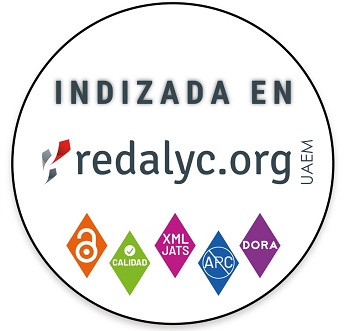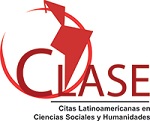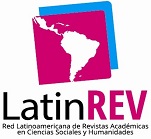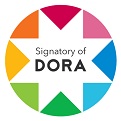Conception of the World of Teachers and the Academic Performance of Students
DOI:
https://doi.org/10.26490/uncp.horizonteciencia.2021.20.774Keywords:
Conception of the world, academic performanceAbstract
The interpretation and transformation of social phenomena, natural and of thinking, is manifested only through two conceptions of the world: idealistic or materialistic. There is no third possibility. For example, the idealism around the problem of the historical process, justifies the crisis of capitalist formation as a problem, fundamentally spiritual of man, and that the disintegration of said society will be the disappearance of the "universal culture". In opposition to it, dialectical materialism holds, that as a social matter we are, we also submit ourselves to the laws of social movement; there is no material in arbitrary movement, without direction or orientation and that we are subject to certain social laws. Education as an important factor in the development or failure of society, leads to teachers, merit or responsibility, respectively. Therefore, what is the relationship between the teachers' conception of the world and the academic performance of their students.
Downloads
References
Academia Ciencias de la URSS. (1975). Fundamentos de filosofía marxista - leninista (Vol. II). Moscú: Progreso.
Adell, M. (2004). Estrategias para mejorar el rendimiento académico de los adolescentes. Madrid: Pirámide.
Antezana, R. (2010). La concepción filosófica predominante en los docentes de la región Huancavelica, a finales del pasado milenio y principios del presente (Tesis de Maestría). Universidad Nacional de Huancavelica, Huancavelica.
Cantero, M. (1997). Incidencia de la Escolástica sobre la Teología en General en el Medioevo, en la Edad Moderna y en la Edad Contemporánea (Tesis de Maestría). Colombia.
Cerrón, J. (1989). Historia de las ideas del Perú contemporáneo. Huancayo.
MINEDU (2008). Diseño Curricular Nacional de Educación Básica Regular (Segunda Edición). Lima.
Engels, F. (1975). Ludwing Feuerbach y el fin de la filosofía clásica alemana. Lima: Fondo de Cultura Popular.
Engels, F. (1970). Obras escogidas: Contribución al problema de la vivienda (Vol. I). Moscú: Progreso.
Engels, F. (1968). Anti-Dühring. La subversión de la ciencia por el señor Eugen Dühring. México: Grijalbo, S. A.
Huerta, M. (2009). Aprendizaje estratégico. Lima: San Marcos.
Lambruschini, D. (1997). Filosofía Oriental en la Concepción del Hombre (Tesis Doctoral). San Salvador.
Lenin, V. (1960). Obras escogidas. México: Librerías Allende S. A.
Lora, F. W. (2006). Filosofía. Lima: Gutemberg.
Mao. (1972). Obras escogidas (Vol. II). Lima: Lenguas Extranjeras.
Mao, T. (1971). Cinco tesis filosóficas. Lima: Lenguas Extranjeras.
Mariátegui, J. C. (1988a). Historia de la crisis mundial (doce). Lima: Amauta.
Mariátegui, J. C. (1988b). El artista y la época (trece). Lima: Amauta.
Mariátegui, J. C. (1988c). Ideología política (diecisiete). Lima: Amauta.
Mariátegui, J. C. (1973). Temas de educación. Lima: Amauta.
Mariátegui, J. C. (1996). 7 ensayos de interpretación de la realidad peruana (sesenta y tres). Lima: Amauta.
Martínez Rangel, R., y Reyes Garmendia, E. (2012). El Consenso de Washington: la instauración de las políticas neoliberales en América Latina. Política y cultura, (37), 35-64.
Marx, C. (1986). Introducción a la crítica de la economía política. Buenos Aires: Anteo.
Marx, C., y Engels, F. (1968). Obras escogidas. México: Grijalbo.
Marx, C., y Engels, F. (1974). Ideología alemana: Crítica de la novísima filosofía alemana en las personas de sus representantes Feuerbach, B. Bauer y Stirner y del socialismo alemán en las de sus diferentes profetas. (Quinta). Barcelona: Grijalbo.
Monrroy, M. (2012). Desempeño docente y rendimiento académico en Matemática de los alumnos de una Institución Educativa de Ventanilla - Callao (Tesis de Maestría). San Ignacio de Loyola, Lima.
OCDE. (2016). PISA Resultados Clave. Recuperado 9 de julio de 2017, a partir de https://www.oecd.org/pisa/pisa-2015-results-in-focus-ESP.pdf
Rosental, I. (2005). Diccionario filosófico. Lima: Huascarán.
Selsam, H. (1968). ¿Qué es filosofía? México: Grijalbo.
Shishkin, A. (1966). Ética marxista. México: Grijalbo.
SICRECE. (2016) ¿Cuánto aprenden nuestros estudiantes en las competencias evaluadas?
Stalin, J. (1972). ¿Anarquismo o socialismo? México: Grijalbo.
Suchodolski, B. (1965). Teoría marxista de la educación. México: Grijalbo.
Sujov, A. D. (1968). Las raíces de la religión. México: Grijalbo.
Yarlequé, L., Javier, L., Monroe, J., & Nuñez, E. (2007). Investigación en educación y Ciencias Sociales. Huancayo.
Downloads
Published
Issue
Section
License
Copyright (c) 2021 Régulo Pastor Antezana Iparraguirre

This work is licensed under a Creative Commons Attribution-NonCommercial 4.0 International License.
















